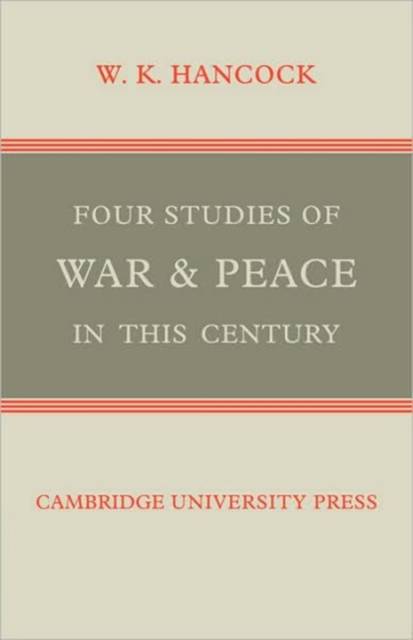
Bedankt voor het vertrouwen het afgelopen jaar! Om jou te bedanken bieden we GRATIS verzending (in België) aan op alles gedurende de hele maand januari.
- Afhalen na 1 uur in een winkel met voorraad
- In januari gratis thuislevering in België
- Ruim aanbod met 7 miljoen producten
Bedankt voor het vertrouwen het afgelopen jaar! Om jou te bedanken bieden we GRATIS verzending (in België) aan op alles gedurende de hele maand januari.
- Afhalen na 1 uur in een winkel met voorraad
- In januari gratis thuislevering in België
- Ruim aanbod met 7 miljoen producten
Zoeken
€ 60,95
+ 121 punten
Omschrijving
Sir Keith Hancock makes a four-pronged reconnaissance of international relations and, consequently, the prospects of human survival. He begins by discussing total war and 'small wars' and considers the relevance of this discussion, particularly in its economic aspects, to 'the cold war' and its costs. Sir Keith then turns to treaty-making, and in particular to Smuts's experience at Vereeniging in 1902 and Paris in 1919; he concludes that it is impossible to make a satisfactory peace settlement in the aftermath of total war, but that there are better prospects for negotiations during the 'cold war'. He goes on to examine Gandhian non-violence, particularly its origins in the Gandhi-Smuts conflict. He outlines the limitations of Gandhi's techniques and suggests that although they were successful against Smuts and Halifax, they would not necessarily have succeeded against Hitler and Stalin: for non-violence is not a substitute for military readiness. In his final section, Sir Keith surveys the developing international community and considers the present-day world in the perspective of history.
Specificaties
Betrokkenen
- Auteur(s):
- Uitgeverij:
Inhoud
- Aantal bladzijden:
- 140
- Taal:
- Engels
- Reeks:
Eigenschappen
- Productcode (EAN):
- 9780521088398
- Verschijningsdatum:
- 30/10/2008
- Uitvoering:
- Paperback
- Formaat:
- Trade paperback (VS)
- Afmetingen:
- 140 mm x 216 mm
- Gewicht:
- 185 g

Alleen bij Standaard Boekhandel
+ 121 punten op je klantenkaart van Standaard Boekhandel
Beoordelingen
We publiceren alleen reviews die voldoen aan de voorwaarden voor reviews. Bekijk onze voorwaarden voor reviews.









